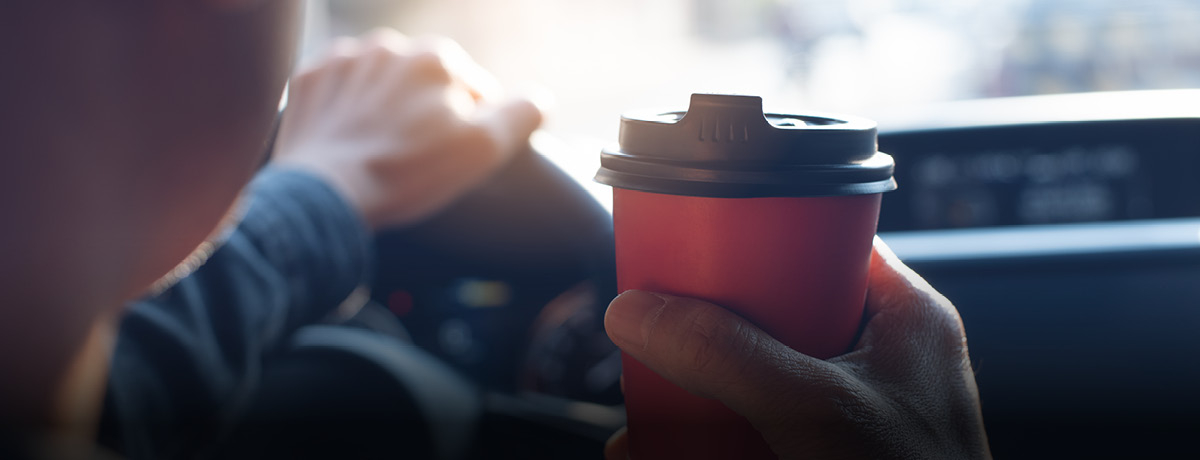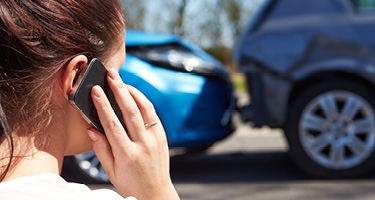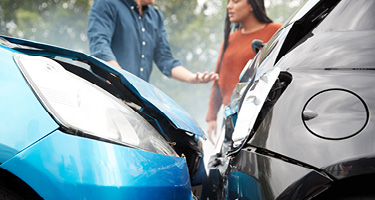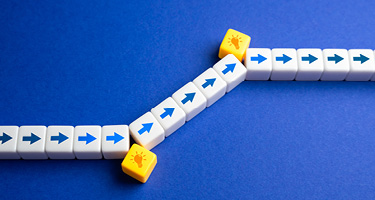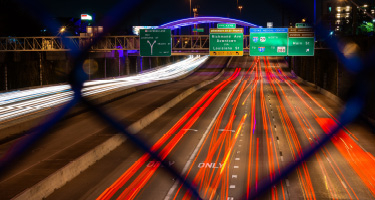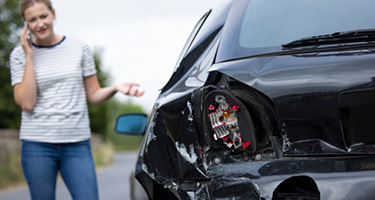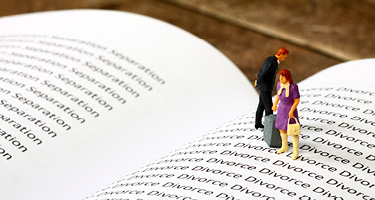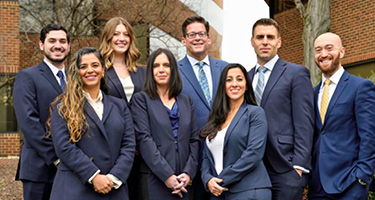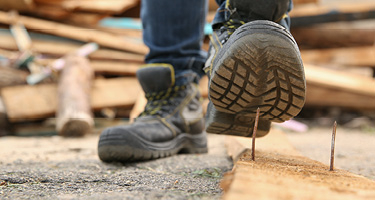This article was original published on 4/12/17 and was updated on 2/18/22.
Allow me to set the scene: you’ve enjoyed a wonderful meal with friends where you consumed two mixed alcoholic drinks. You feel fine to drive, but just to be sure you stay alert, you down a large energy drink before climbing in your car. A short time later, you notice the telltale flashing blue/red lights in your rearview mirror. You pull over, confident that you are not at risk of a DUI.
But are you at risk? This depends on any number of factors, including what kind of alcohol the drinks contained and how much; how much you weigh; how much you ate; if you were tired before the meal; if you had taken any medication that day; etc. The physiological effects of alcohol depend on many different factors, but is caffeine one of them? You drank an energy drink five minutes ago—could caffeine come into play as you sit and wait for the officer to approach?
Most of today’s energy drinks contain small levels of ethanol, which can register on a breathalyzer within 15 minutes of consumption."
Caffeine is a naturally occurring chemical stimulant that affects the central nervous system. It actually shares characteristics with cocaine, amphetamines, and heroin. Most people think of caffeine as something that can keep them awake or alert. Think back to a time when you needed to stay awake, maybe to pull an all-nighter at school or to get through a graveyard shift. In order to get the caffeine into your system, you’d down the coffee or soda in large quantities, thinking that would get the job done. And it may have worked, though some of your friends might have thought you were actually on drugs as they watched you in the throes of a caffeine-induced mania.
So, caffeine can give us that recognizable sudden boost of energy, which could keep us alert on the road. But could it also have a downside?
Breathalyzer Tests
While there is no evidence or studies showing that caffeine directly impairs a person’s ability to drive, there are things that you should watch out for when combining caffeine and driving. First, consuming energy drinks before driving could result in a false positive on a breathalyzer test. Most of today’s energy drinks contain small levels of ethanol, which can register on a breathalyzer within 15 minutes of consumption. This could be enough to result in an arrest. So if you are someone who uses the caffeine in energy drinks to stay alert while driving, you should be aware of this risk. While it’s not the caffeine itself that causes the false positive, the use of energy drinks for its high levels of caffeine (often the equivalent of two to three cups of coffee in one drink) could come back to haunt you.
Masking Symptoms of Intoxication
When we have high levels of caffeine in our body, our dopamine output is increased, which can lead to a person taking unusual risks. Part of the problem is that the caffeine can mask feelings of intoxication. In other words, if you are legally drunk (would meet the .08 BAC most states use as the threshold), having a stimulant like caffeine coursing through your veins might convince you otherwise. You may think you are more in control, more alert, more responsive, and that might convince you to get behind the wheel. Caffeine can provide a false sense of security, which could lead to disastrous results.
Being Mistaken for Symptoms of Intoxication
In high doses, caffeine can often cause symptoms similar to those seen in someone who has ingested drugs or alcohol. These include:
- Dizziness
- Blurred vision
- Anxiety
- Restlessness or nervousness
- Increased heartbeat
If a person is experiencing these kinds of symptoms, it could impair their driving to the point where a police officer might deem it erratic and be justified in pulling them over. And while the person might not fail a breathalyzer test, there is an increased risk of failing one of the standard field sobriety tests that are typically administered by law enforcement.
The three most common field sobriety tests are the:
- Horizontal Gaze Nystagmus (HGN): looks at certain eye movements and how rapid and exaggerated they appear.
- Walk and Turn
- One Leg Stand
Someone who has ingested large quantities of caffeine, resulting in alcohol-like symptoms, could be pulled over and asked to complete this series of tests. The person runs the risk of failing these tests because of the physiological effects of the caffeine. If the person is dizzy, they may fail the Walk and Turn or One Leg Stand. Caffeine can also cause the eyes to move more rapidly than usual, which could cause a failed HGN test.
While the person might not fail a breathalyzer test, there is an increased risk of failing one of the standard field sobriety tests that are typically administered by law enforcement."
The bottom line is that someone who has ingested a large dose of caffeine could exhibit symptoms that lead to erratic driving, giving law enforcement reasonable cause to pull them over and could potentially result in them failing any one or all of the field sobriety tests.
What to Do if Pulled Over
If you feel you must consume an energy drink, multiple cups of coffee/soda, or anything else with caffeine before driving, here are a few tips to keep in mind:
- If you’ve consumed an energy drink, wait at least 15 minutes before driving. This will reduce the risk of a false positive on a breathalyzer.
- If you are driving erratically due to caffeine-induced symptoms and are pulled over, do not consent to any field sobriety test. These tests are completely voluntary in California and many other states (check to see if your state is included), and you cannot be forced to submit to them. The tests are highly unreliable, and submitting to the tests could result in failure due to physiological symptoms unrelated to alcohol or drugs (e.g., caffeine, age, weight, athletic ability, etc.).
For most people, caffeine use is not going to result in a DUI. However, there are some situations in which the ingestion of caffeine before driving could put you at an increased risk of being pulled over and possibly failing a sobriety test, so caffeinate carefully!
The Law Office of Andrew J. Decker handles serious crimes, including drugs, weapons, DUI, DWI and traffic tickets.
Daniel Taylor is an entrepreneur, marketer, and writer. He swims, cycles, and runs a lot. When he’s not doing all those, he loves to read and try new things.
